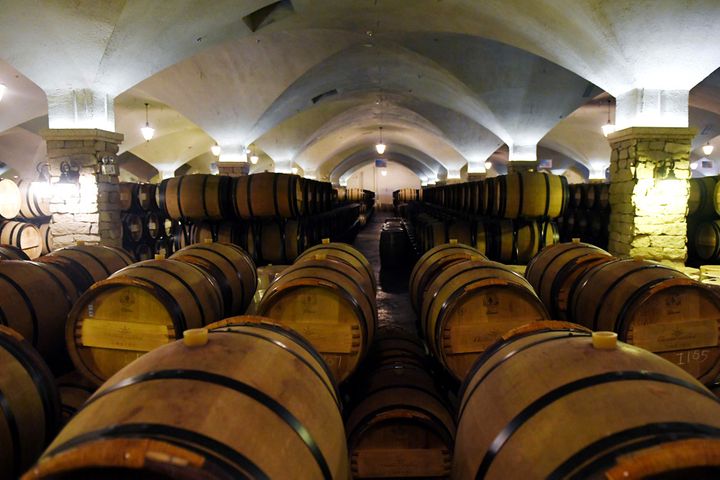 Covid-19 Impacts Wine Sales, Chinese Wineries Face Liquidity Problems
Covid-19 Impacts Wine Sales, Chinese Wineries Face Liquidity Problems(Yicai Global) March 23 – Although China's novel coronavirus outbreak has been significantly eased, some wineries are facing a liquidity crunch due to the enforced closure of catering and pub industry business that resulted in sales interruption and payment collection difficulties. The problems come just as the wine industry is gearing up for spring production.
The catering industry is just resuming business while the demand for liquor and alcoholic beverages in the retail market hasn't recovered yet, so cash flow-back from sales are still stalled, Chen Lizhong, owner of Xinjiang Tiansai Vineyards, told Yicai Global.
Wine Industry Faces Liquidity Pressure
"Our firm's offline sales dropped 80 percent from the same period last year," Feng Yingzun, general manager of Ningxia Leirenshou Winery, revealed to Yicai Global, noting that the winery's online sales have also been significantly impacted. For example, its sales on China's major e-commerce marketplace Taobao under Alibaba Group Holding declined 20 percent.
Leirenshou Winery is a representative enterprise of China's large-scale wineries and can produce over 1 million bottles of wine a year, with a 50-50 split in online and offline sales.
Feng said that the fourth quarter of each year and the first quarter of the following year is the peak season for wine sales, with 70 percent of the firm's annual sales completed during this period. The Covid-19 outbreak happened to occur in the first quarter, thus wine which should have been sold out before the Spring Festival is still on the shelves.
The company has 109 employees and pays CNY300,000 (USD42,282.69) to CNY500,000 monthly for their social insurance premium and wages, in addition to fixed expenditures and payment for spring farming and grapes, Feng revealed. So the winery is facing a CNY5 million (USD704,711.5) funding gap before the next peak sales season in the fourth quarter comes.
Shanxi province's largest winery Grace Vineyard also announced earlier that the company's financial results for the first quarter are expected to be unsatisfactory due to plummeting wine consumption amid the outbreak. But the announcement didn't give specific figures.
Meanwhile, vineyards in Penglai city, Shandong province, which abounds in wine haven't received any new orders, Shen Guoquan, director of the city's wine bureau, told Yicai Global.
April to June is the planting season for wineries, which requires a lot of investment. Some wineries also make final payment to grape growers for the previous year during this period, and their loans from banks are generally due at this time.
In fact, last year was a bad year for China's wine industry, with sales of wine companies declining to varying degrees, which added to the financial pressure on winery operators.
Huo Xingsan, deputy secretary-general of the wine branch of the China Alcoholic Drinks Association, told Yicai Global that some wineries are indeed facing financial difficulties, according to a recent survey.
Financing Difficulty Is a Long-Standing and Grim Problem in the Wine Industry
Local governments have unveiled support policies such as low-interest loans since the Covid-19 outbreak, but industry insiders think these policies have provided limited help to wineries. Some winery owners told Yicai Global that they cannot apply for low-interest loans because they have no collaterals.
Even without the outbreak, financing difficulty has been a long-standing problem plaguing China's wine industry. Banks are not willing to lend money to wineries, Zhang Yanzhi, owner of Ningxia Xige Estate, complained to Yicai Global.
Wines produced by most wineries need one to two years ageing in oak barrels before they go on the market, which can take up a lot of money, industry insiders said. Banks, however, prefer fixed assets such as land and real estate certificates to raw wine or finished wine as collaterals for loans.
To overcome the current difficulties, wineries must accelerate the expansion of their sales channels while the government and financial institutions are expected to introduce policies, such as interest subsidy, interest rate cut, allowing delay in tax payment, or subsidies, to ease temporary liquidity difficulties, Feng of Leirenshou Winery stated. "For example, wineries need to pay the consumption tax for the first quarter in the second quarter, which will worsen to their cash-strapped situation. It will be much better if they are allowed to delay tax payment."
Editors: Tang Shihua, Peter Thomas